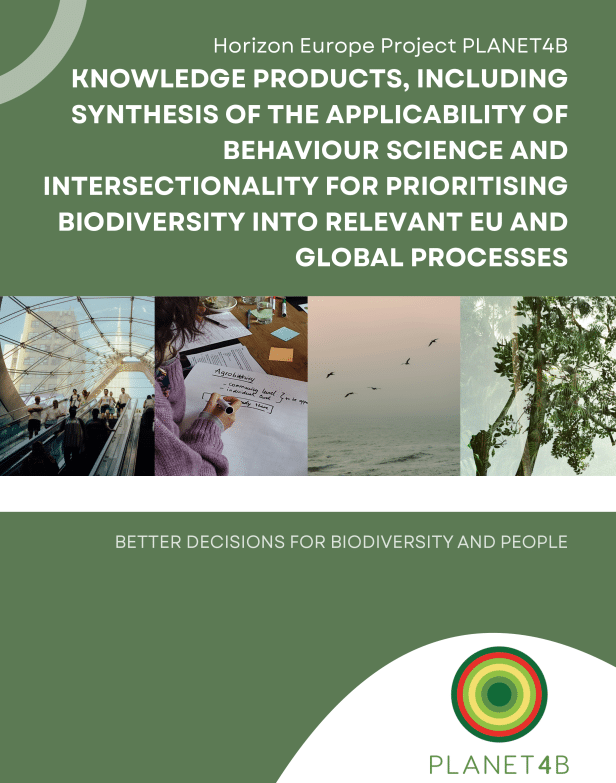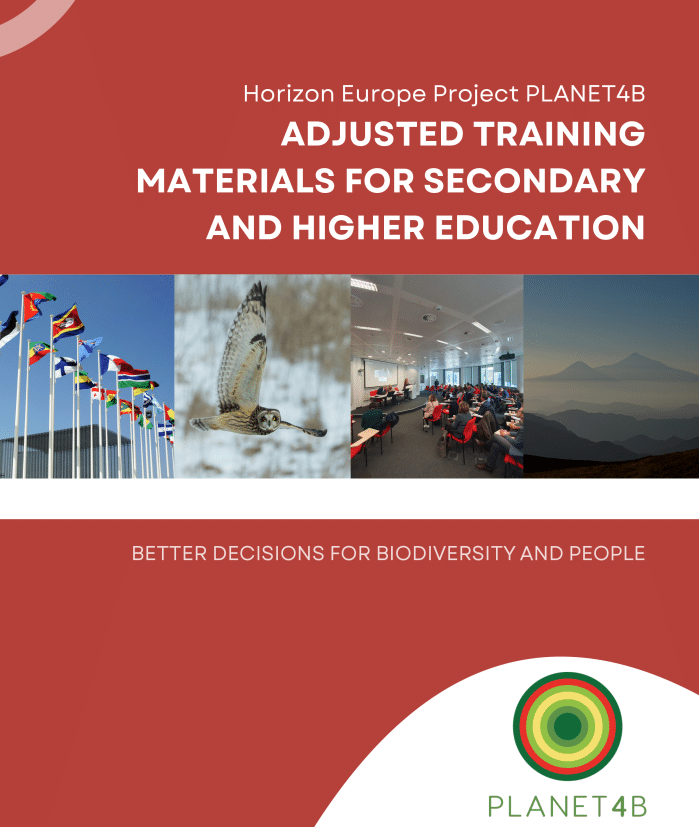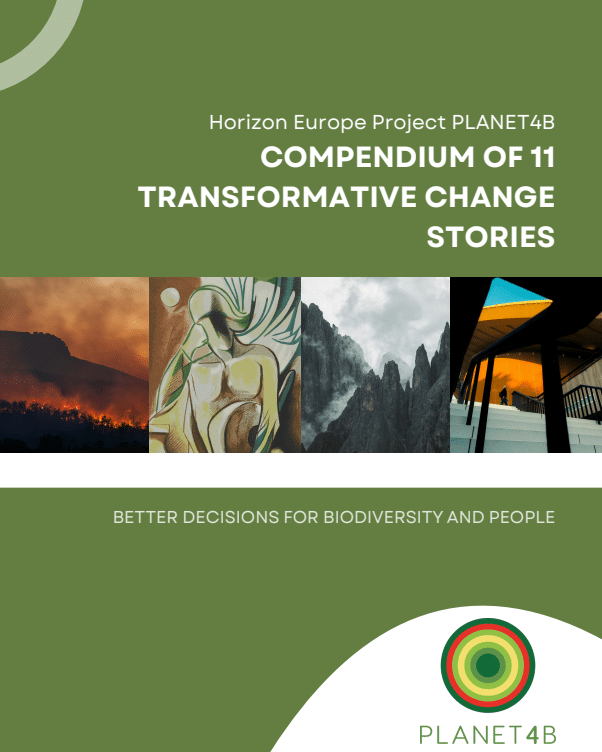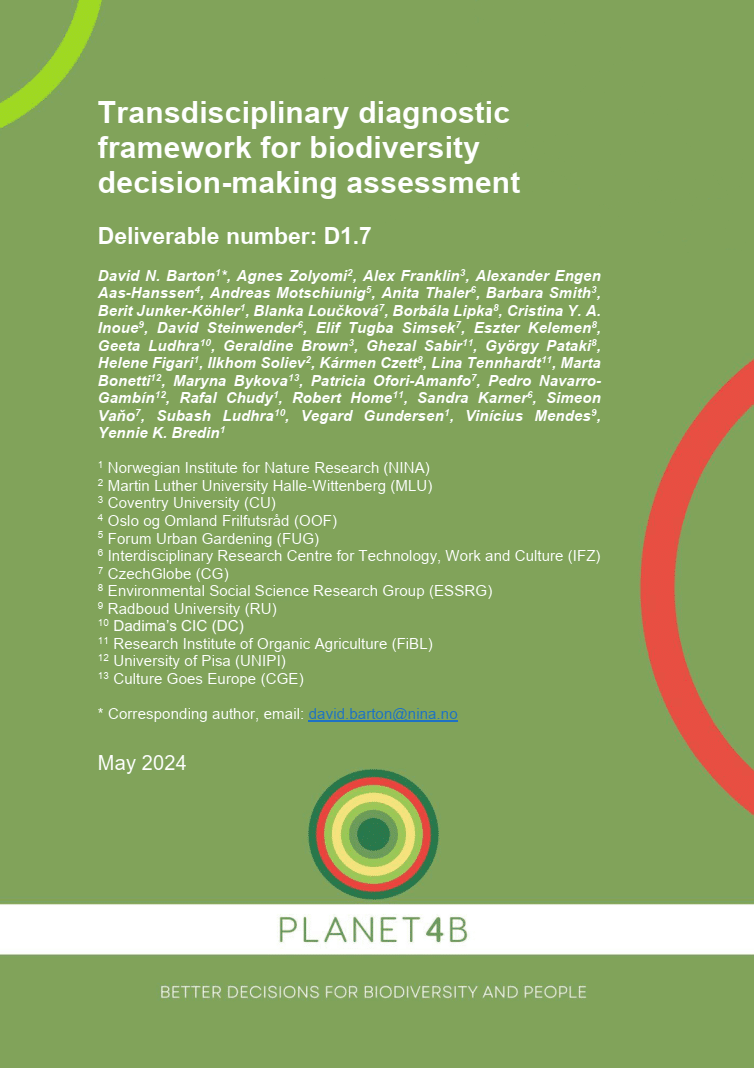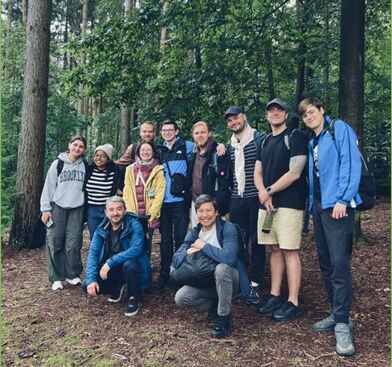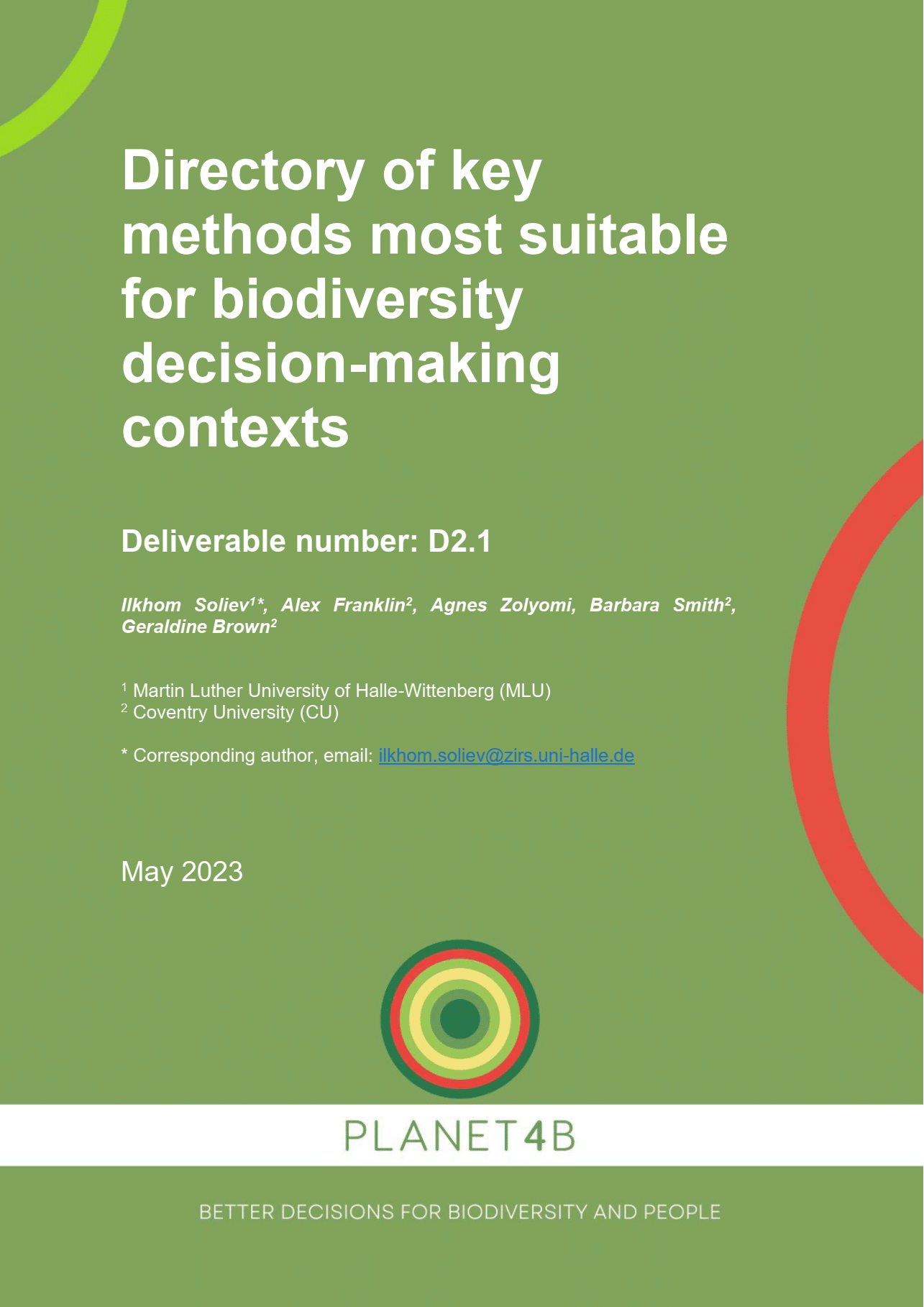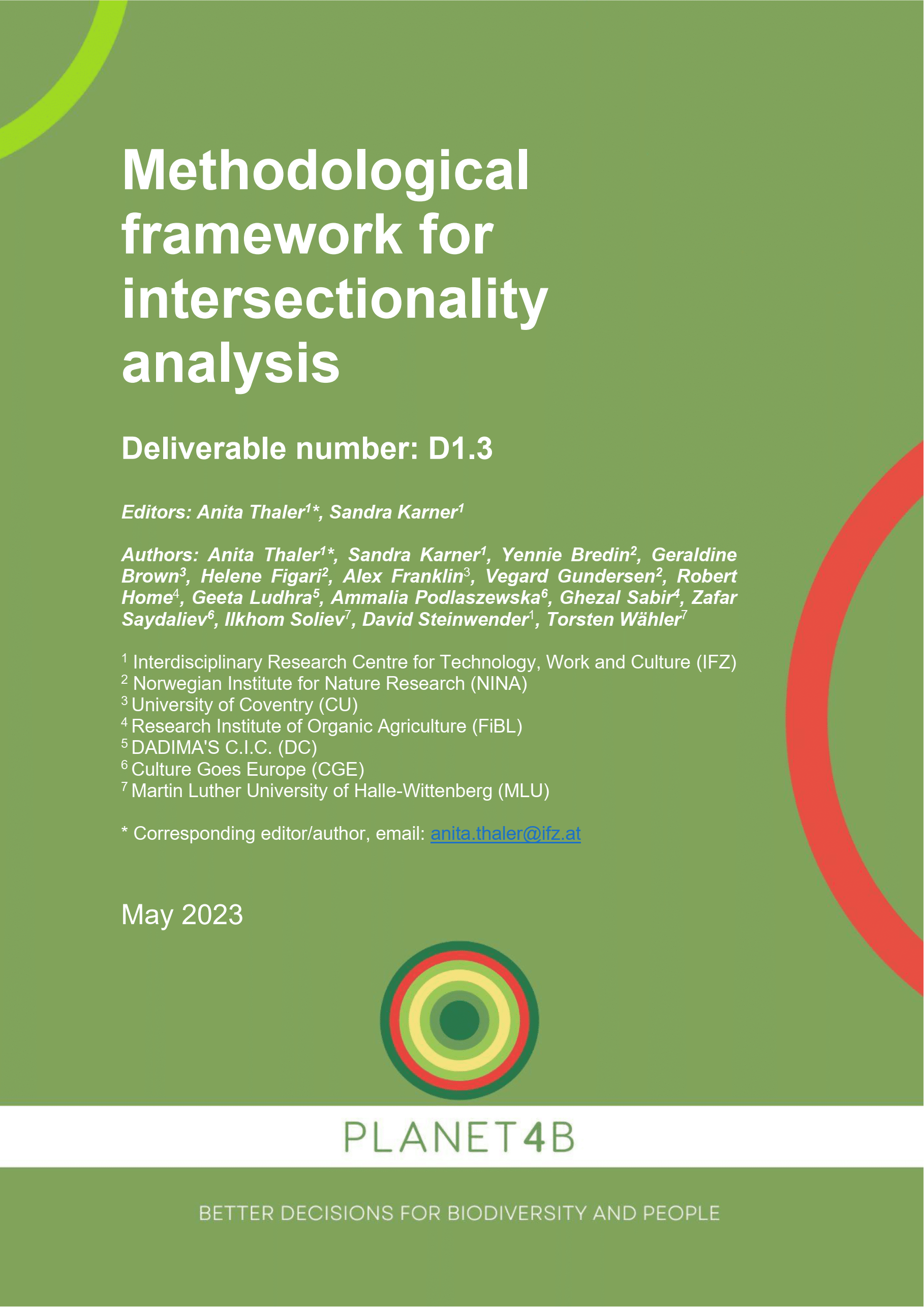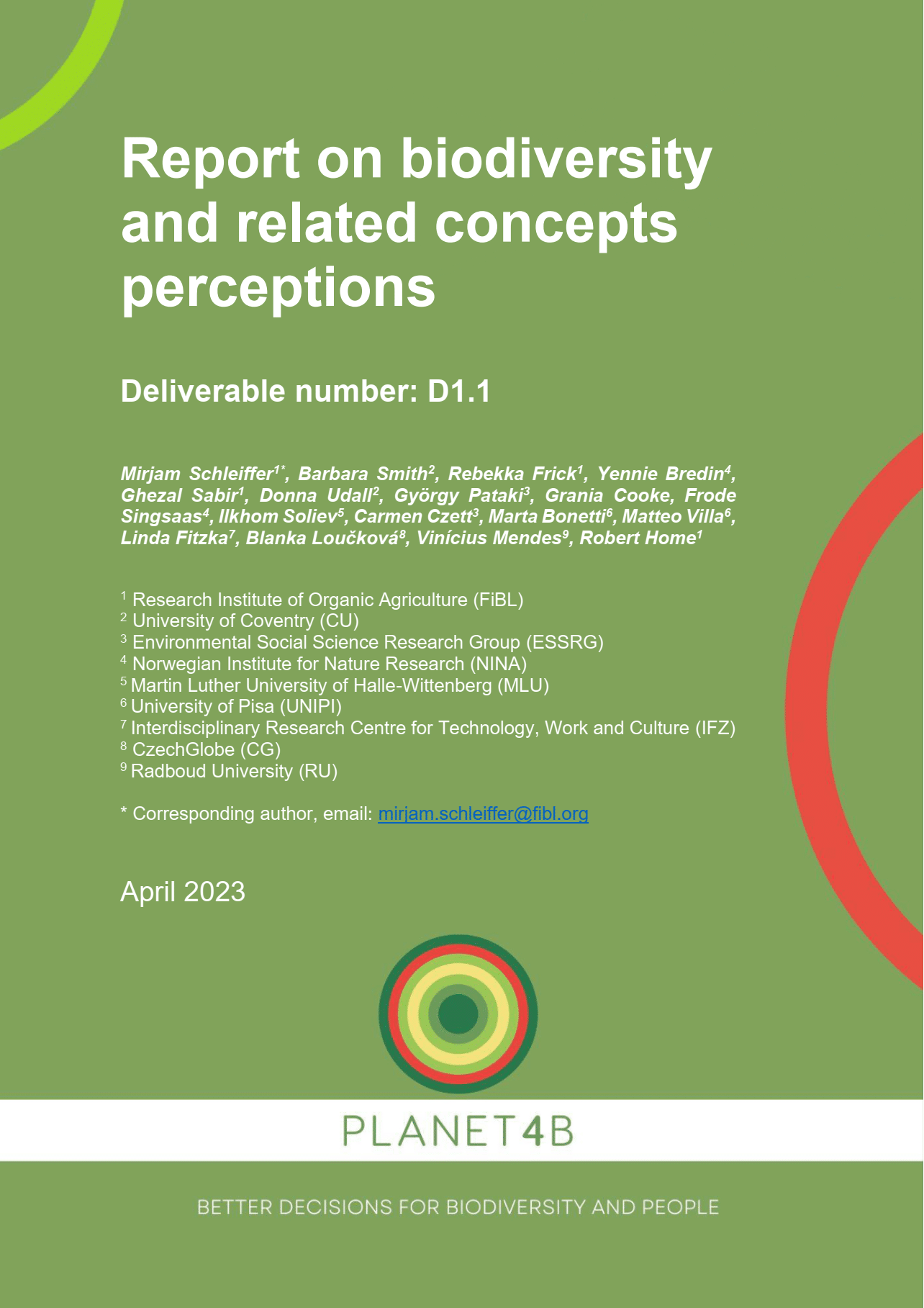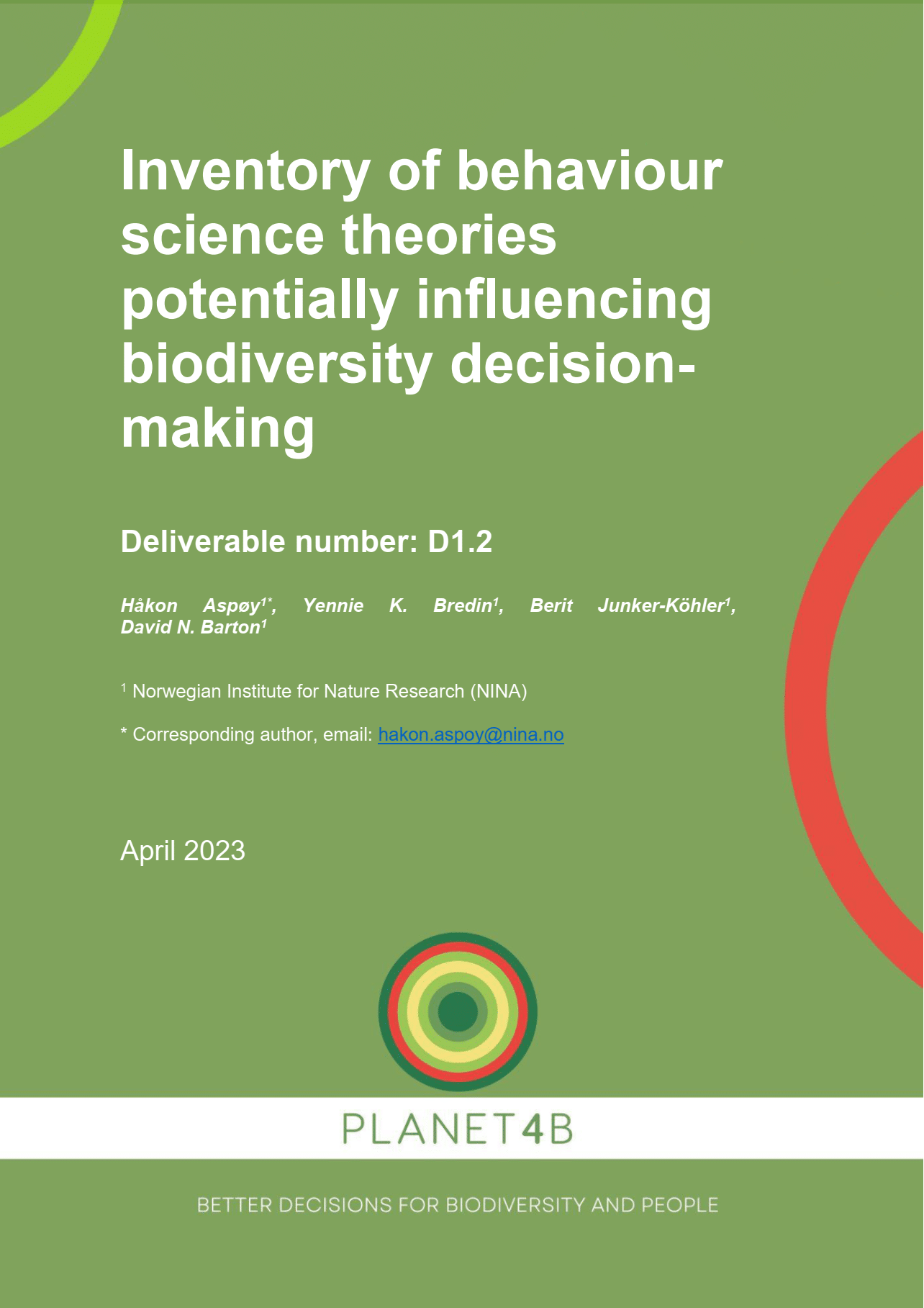Project documents
Read and download the materials, reports and publications developed throughout the project.
Latest documents
- Behaviour Biodiversity intersectionality PolicyResearch report
Knowledge products, including synthesis of the applicability of behaviour science and intersectionality for prioritising biodiversity into relevant EU and global processes
The IPBES Transformative Change Assessment (2024) makes clear, fundamental and systemic change is essential to reverse current trends of biodiversity crisis. It calls for a rethinking of how societies value and relate to the natural world, recognising that well-being, justice and care for the planet are interconnected dimensions of sustainable prosperity. PLANET4B addresses these implementation challenges [...]
- Behaviour Biodiversity intersectionalityResearch report
Adjusted training materials for secondary and higher education
This deliverable presents the development and testing of the PLANET4B Biodiversity Engagement Course for Educators. By providing educators in secondary and higher education with transdisciplinary training and teaching materials on biodiversity and the biodiversity crisis, the Course aims to build educators’ capacity to teach about these themes through systems thinking, intersectionality and creative and experiential learning, thereby inspiring students to take [...]
- Behaviour Biodiversity intersectionality Policy researchResearch report
Compendium of 11 Transformative Change Stories
This report presents the Compendium of 11 Transformative Change Stories developed within the PLANET4B project. The stories show how biodiversity-related decision-making is inseparable from social practices, values, identities, and institutions, and how participatory approaches can generate pathways toward more just and biodiversity-positive futures. The 11 stories cover two clusters: five place-based cases focusing on intersectional [...]
All documents
- Behaviour Biodiversity intersectionality researchResearch report
This deliverable describes the process of developing a transdisciplinary diagnostic framework for biodiversity decision-making carried out in Work Package 1 of the EU funded research project PLANET4B. The aim of the process was to help researchers and practitioners in our project become more conscious of the theoretical approaches and languages that may condition the interventions we study and the policy and additional recommendations that we make to societal actors. The [...]
- Behaviour intersectionality researchResearch report
“One key challenge is the deep level of engagement required by stakeholders (especially members of the Learning Communities). As no financial incentives are provided to participants, their motivation to get engaged depends mostly on how well the learning objectives align with their aspirations.” - highlights the lead researcher in the report of establishing Learning Communities and Advisory Boards. The local and virtual communities established in frame of PLANET4B project help [...]
- Behaviour BiodiversityResearch report
This report introduces a directory of 100 key intervention methods most suitable for biodiversity decision making contexts, organised across three main categories: experiential games; framing and nudging experiments; and creative, arts-based and deliberative methods.
- Behaviour BiodiversityResearch report
To tackle this interlinkage of inequalities in the field of biodiversity, PLANET4B aims at utilizing the concept of intersectionality. Intersectionality highlights that race, gender, disability, sexuality, class, age, and other social categories are interrelated and lead to different levels of power and oppression influenced by forces like colonialism and neoliberalism.
- Behaviour Biodiversity PolicyResearch report
Using biodiversity to persuade: A discourse analysis
The meaning we assign to the world around us influences the way we behave and treat things. Therefore, it is of great importance to better understand how society views and understands fundamental challenges of our time, such as biodiversity loss. This knowledge will help to make social, political, or economic interventions more effective in preserving and enhancing biodiversity and also help communicate adequately about the issue of biodiversity loss. The [...]
- Behaviour Biodiversity PolicyResearch report
The report collects and classifies a range of frameworks, theories, models, and concepts across a gradient of intrapersonal, interpersonal, and institutional levels of intervention to provide an inventory of behavioural- and social science theories. This can give insights about disciplinary assumptions about behaviour and decision-making that may influence biodiversity.

